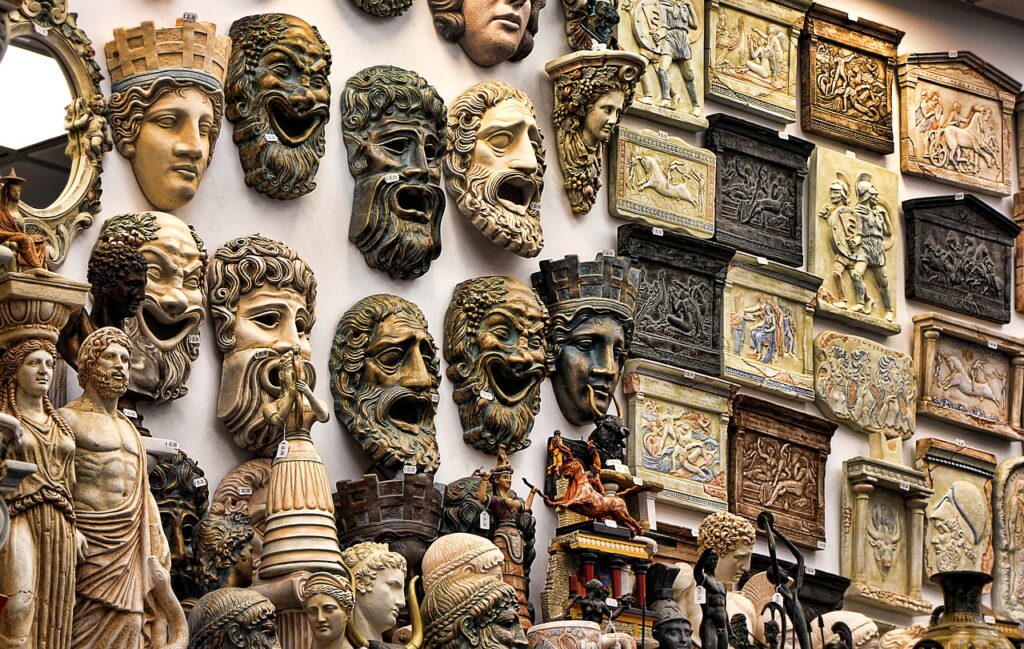Throughout history, men’s facial hair has not only been a form of self-expression but also a symbol of cultural significance. In this part of our series on the history of men’s facial hair, we’ll explore how facial hair has been used to convey social status, political views, and even religious beliefs.
Cultural Geography
Throughout history, men’s facial hair has held various cultural significances, often symbolizing qualities such as maturity, wisdom, and masculinity. Ancient Chinese culture, for instance, viewed long wispy beards as a sign of advanced age and social status. A man with a full beard in ancient Greece was perceived as mature and wise, as the beard was seen as a physical manifestation of the man’s intellectual and spiritual growth. In addition to being a symbol of status and wisdom, facial hair has also been associated with virility and masculinity in many cultures, such as among the Vikings and in Medieval Europe. In fact, during the Middle Ages, men who could not grow facial hair were sometimes seen as effeminate and lacking in masculine qualities. While cultural perceptions of men’s facial hair have varied throughout history and across different regions, it is clear that this physical trait has played an important role in shaping perceptions of masculinity and status in many societies.
Political Symbol
Facial hair has not only held cultural significance throughout history but has also been used as a political symbol in recent times. In the 19th century, for instance, American politicians grew long and bushy beards as a way to connect with voters and portray themselves as rugged and capable leaders. (In our next series, “How to Be The Mane Attraction: A Hairy History of American Presidents” we’ll get more in depth). Now, similarly, during the counterculture movements of the 1960s and 70s, long hair and beards became a way for individuals to rebel against mainstream society and express their political views. The beard was a sign of rejection of societal norms and a symbol of individualism and nonconformity. In contemporary times, facial hair continues to hold political significance, with various political movements using facial hair to express their beliefs and political affiliations. From the bearded hipster to the well-groomed politician, men’s facial hair remains an important physical trait that has shaped cultural and political discourse throughout history.
Religious Beliefs
Beyond politics and culture, religious beliefs have also significantly influenced men’s facial hair. In many religions, including Judaism, Islam, Sikhism, Christianity, and Amish, beards are viewed as a sign of religious devotion and are often grown as a way to honor and display one’s faith. For Orthodox Jews, growing a long beard is a way to follow the biblical commandment not to trim the corners of one’s beard. Similarly, in Islam, the Prophet Muhammad is believed to have worn a beard, and many Muslim men choose to grow beards as a way to emulate him and demonstrate their religious commitment. In Sikhism, uncut hair and a beard are considered one of the five articles of faith and are seen as a symbol of the Khalsa, a community of baptized Sikhs. While there is no specific Christian teaching on growing a beard, some Christian denominations encourage men to grow facial hair as a way to follow biblical examples and display a sense of masculinity and maturity. In the Amish tradition, beards are grown by married men as a symbol of religious devotion and humility, based on their interpretation of biblical teachings. In these and many other religions, facial hair plays an important role in religious identity and practice. The significance of facial hair in religion has also sparked debates and controversies, with some individuals and groups facing discrimination and prejudice due to their beards and other religious symbols. Nevertheless, for many men, growing a beard remains a powerful expression of their faith and devotion.
In conclusion, men’s facial hair continues to be a meaningful form of cultural expression in contemporary times. From the meticulously groomed beards of hipster culture to the long, flowing beards of religious devotion, facial hair remains a physical trait that tells a unique story about the men who wear it. Throughout history, facial hair has been a symbol of maturity, wisdom, virility, and masculinity, and has been used for political, religious, and cultural purposes. Today, as men continue to experiment with different styles and grooming techniques, facial hair remains a powerful means of self-expression and identity formation. Whether growing a beard for religious reasons, as a political statement, or simply as a personal preference, facial hair will continue to be an integral part of men’s cultural and historical legacy.
Stay tuned for the final part of our series, “The Future of Men’s Facial Hair” where we’ll explore the future of this age-old tradition. What are the reasons for you to GROW(L) your BEARD? Email us with yours TheBeardedBassetLLC@gmail.com

